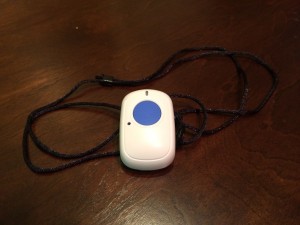Why You Need a Fall Alarm
The common statistic cited for falls among seniors is that a third of people over the age of 65 will suffer a fall every year. But what is not commonly mentioned is survival statistics. And they show why every senior should get a medical alert system with a fall alarm.
A study published in the New England Journal of Medicine says that when help arrives to seniors less than an hour after a fall, 92% of them are found alive. The numbers fall off dramatically after that:
1-3 hours: 47%
3-6 hours: 25%
6-12 hours: 22%
12-24 hours: 33%
24-48 hours: 14%
48-72 hours: 12%
More than 72 hours: 13%
So what does this all mean? it means that the sooner a senior is found after a fall, the more likely it is that they are alive. Seniors who live alone who suffer a fall and cannot call for help can languish for days before someone comes to check up on them. And according to the numbers, it will likely already be too late.
Seniors who have medical alert systems with a fall alarm do not have to worry about these disturbing numbers. That’s because once a fall is detected, a signal is sent to the base unit and a call is automatically placed to the central monitoring center. If the fall has left the senior unable to respond, the monitor is instructed to immediately dispatch an ambulance. Help will arrive within minutes. Not hours, not days. So the odds are very good that the senior will be alive and will survive their injuries.
Now, not every medical alert provider offers a fall alarm. They say the technology is not reliable enough, that there are too many false alarms. But other companies disagree and proudly offer it.
It is estimated that a fall alarm detects 95% of all falls. That is a high enough number to live with the occasional false alarm. It could save your life some day.



